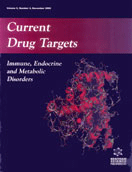Abstract
An outstanding question of current immunology is to define the mechanisms by which microbial products influence the immunopathologic host response elements in the early stages of infection. Macrophages are now well recognized to have a critical role in both innate and acquired immunity. In order to adjust promptly to continuous changes in microenvironment and maintain the immunologic balance, macrophages adequately respond by activating one of the numerous immunologic programs. However, sustained macrophage activation and excessive production of inflammatory mediators can perpetuate the numerous pathological processes and contribute to induction of stress response and even apoptosis. Therefore, selective modulation of macrophage activity represents an important strategy for prevention and treatment of inappropriate inflammatory responses in order to minimize the unwanted side-effects of the immunity. Macrophages can be selectively reprogrammed for a specific phenotype of immune response, e.g. cytokine or nitric oxide (NO), by relatively short-term exposure of the cells to substimulatory concentrations of different microbial components, including LPS. These LPS-dependent reprogramming effects are mediated by IFNgamma- independent autocrine cytokine regulatory mechanisms that also controlled at the transcriptional level. Furthermore, LPS reprogrammed macrophages exhibit differential capacity to resist experimentally induced apoptosis and to produce heat shock proteins. Complete analysis of, and appreciation for, the immunoregulatory mechanisms implicated in LPS-dependent reprogramming of immune responses in macrophages can be expected to increase our understanding of the host innate response, as well as allow investigators to utilize emerging immunologic technologies in effective treatment of infections and chronic inflammatory diseases.
Keywords: macrophages, lps, stress response, apoptosis, nitric oxide, cytokines, innate and acquired immunity
Current Drug Targets - Immune, Endocrine & Metabolic Disorders
Title: Controlled Modulation of Inflammatory, Stress and Apoptotic Responses in Macrophages
Volume: 3 Issue: 1
Author(s): I. Yu. Malyshev and A. Shnyra
Affiliation:
Keywords: macrophages, lps, stress response, apoptosis, nitric oxide, cytokines, innate and acquired immunity
Abstract: An outstanding question of current immunology is to define the mechanisms by which microbial products influence the immunopathologic host response elements in the early stages of infection. Macrophages are now well recognized to have a critical role in both innate and acquired immunity. In order to adjust promptly to continuous changes in microenvironment and maintain the immunologic balance, macrophages adequately respond by activating one of the numerous immunologic programs. However, sustained macrophage activation and excessive production of inflammatory mediators can perpetuate the numerous pathological processes and contribute to induction of stress response and even apoptosis. Therefore, selective modulation of macrophage activity represents an important strategy for prevention and treatment of inappropriate inflammatory responses in order to minimize the unwanted side-effects of the immunity. Macrophages can be selectively reprogrammed for a specific phenotype of immune response, e.g. cytokine or nitric oxide (NO), by relatively short-term exposure of the cells to substimulatory concentrations of different microbial components, including LPS. These LPS-dependent reprogramming effects are mediated by IFNgamma- independent autocrine cytokine regulatory mechanisms that also controlled at the transcriptional level. Furthermore, LPS reprogrammed macrophages exhibit differential capacity to resist experimentally induced apoptosis and to produce heat shock proteins. Complete analysis of, and appreciation for, the immunoregulatory mechanisms implicated in LPS-dependent reprogramming of immune responses in macrophages can be expected to increase our understanding of the host innate response, as well as allow investigators to utilize emerging immunologic technologies in effective treatment of infections and chronic inflammatory diseases.
Export Options
About this article
Cite this article as:
Malyshev Yu. I. and Shnyra A., Controlled Modulation of Inflammatory, Stress and Apoptotic Responses in Macrophages, Current Drug Targets - Immune, Endocrine & Metabolic Disorders 2003; 3 (1) . https://dx.doi.org/10.2174/1568008033340342
| DOI https://dx.doi.org/10.2174/1568008033340342 |
Print ISSN 1568-0088 |
| Publisher Name Bentham Science Publisher |
Online ISSN 1875-5917 |
 24
24Related Articles
-
Processed Foods, Dysbiosis, Systemic Inflammation, and Poor Health
Current Nutrition & Food Science The Development of Topically Acting Carbonic Anhydrase Inhibitors as Antiglaucoma Agents
Current Topics in Medicinal Chemistry The Therapeutic Potential of Hepatocyte Growth Factor for Myocardial Infarction and Heart Failure
Current Pharmaceutical Design Biologic Agents in the Treatment of Psoriasis
Recent Patents on Inflammation & Allergy Drug Discovery Inflammation and Innate Immune Response Against Viral Infections in Marine Fish
Current Pharmaceutical Design Strategies for Efficient Lead Structure Discovery from Natural Products
Current Medicinal Chemistry Transcriptional Analysis of JAK/STAT Signaling in Glioblastoma Multiforme
Current Pharmacogenomics and Personalized Medicine Identification and Characterization of a Chemical Compound that Inhibits Methionyl-tRNA Synthetase from <i>Pseudomonas aeruginosa</i>
Current Drug Discovery Technologies COX-2 Inhibition, Apoptosis, and Chemoprevention by Nonsteroidal Anti-inflammatory Drugs.
Current Medicinal Chemistry Non-Invasive Cell Tracking in Cancer and Cancer Therapy
Current Topics in Medicinal Chemistry Current and Future Drugs for Appetite Regulation and Obesity Treatment
Recent Patents on Endocrine, Metabolic & Immune Drug Discovery (Discontinued) Role of Dendrimer in Drug Solubilization - A Review
Drug Delivery Letters Emerging Peptide Therapeutics for Inflammatory Diseases
Current Pharmaceutical Biotechnology Pteridine Derivatives as Modulators of Oxidative Stress
Current Drug Metabolism Polyamines in Gut Inflammation and Allergy
Current Medicinal Chemistry - Anti-Inflammatory & Anti-Allergy Agents Macrophage Migration Inhibitory Factor: A Therapeutic Target Across Inflammatory Diseases
Inflammation & Allergy - Drug Targets (Discontinued) Second Messenger Modulation: A Novel Target of Future Antidepressants?
Current Medicinal Chemistry Analysis of Nonsteroidal Anti-inflammatory Drugs by using Microfluidic Techniques: A Review
Current Pharmaceutical Analysis [1, 2, 4]-Oxadiazoles: Synthesis and Biological Applications
Mini-Reviews in Medicinal Chemistry Combined Effect of Parthenolide and Various Anti-cancer Drugs or Anticancer Candidate Substances on Malignant Cells in vitro and in vivo
Mini-Reviews in Medicinal Chemistry



















